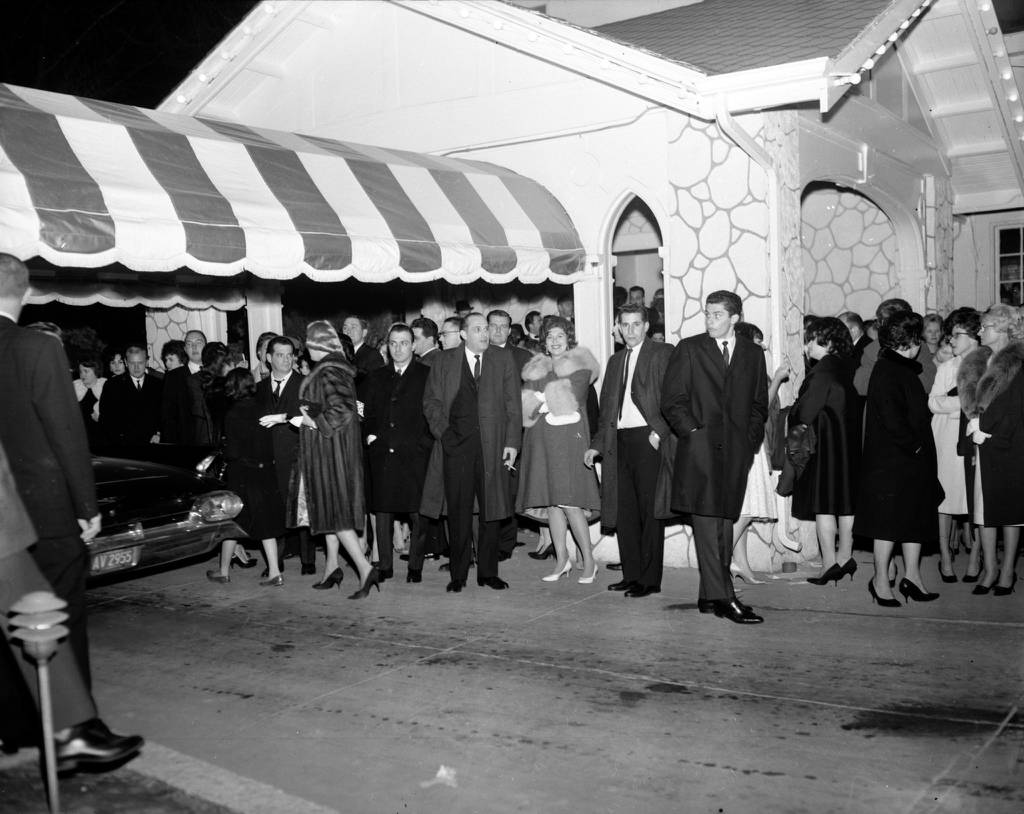With dice rolling across the craps table at Medinah Temple, it may be worthwhile to recall that unsanctioned gambling long flourished in Chicago, giving rise to Patrick Healy’s admonition when legal casinos in Chicago were discussed in 1983.
“You might as well bring back Al Capone,” said the head of Chicago’s Crime Commission.
Capone died in 1947. But the Tribune’s archives are replete with accounts of the illicit gambling and casinos over the decades when Capone and Chicago were synonymous the world over.
[ Al Capone’s final days, death in Florida and burial in Chicago — and why we remember it ]
Capone came to Chicago in 1919 at the invitation of Johnny Torrio. They had shared a mobster’s apprenticeship on New York’s mean streets.
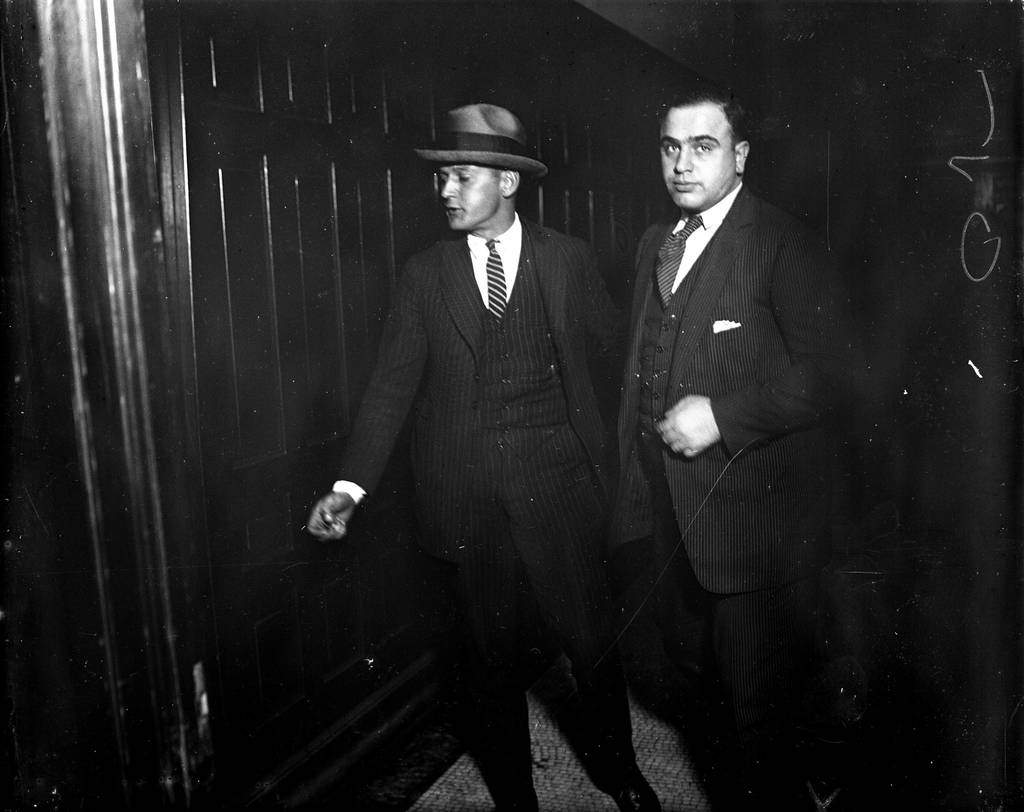
Torrio had moved here to be an assistant to Big Jim Colosimo, whose eponymous restaurant was a favorite of high society and the demimonde. Its origins were a humble joint on South Wabash Avenue where blue-collar workers gambled away their paychecks. In 1913, Big Jim remade it into a glamorous nightclub decorated in rose and gold and with an elevating stage where showgirls pranced.
“You saw thieves and gamblers and crooked coppers and lords and dukes of the badlands,” a Tribune reporter noted. “But you could see, too, millionaires and merchants and bankers and novelists and teachers of kindergarten.”
Torrio wasn’t there on May 11, 1920, when Colosimo was assassinated, prompting the assumption that he had ordered the hit. To counter that, Torrio organized a massive funeral for Colosimo that became the template for gangster funerals.
The feds shut down Colosimo’s in 1926, somewhat belatedly realizing it was violating Prohibition’s ban on booze. Having survived an assassination attempt the previous year, Torrio went back to New York. Capone inherited his criminal enterprises and established a dynasty of casinos.
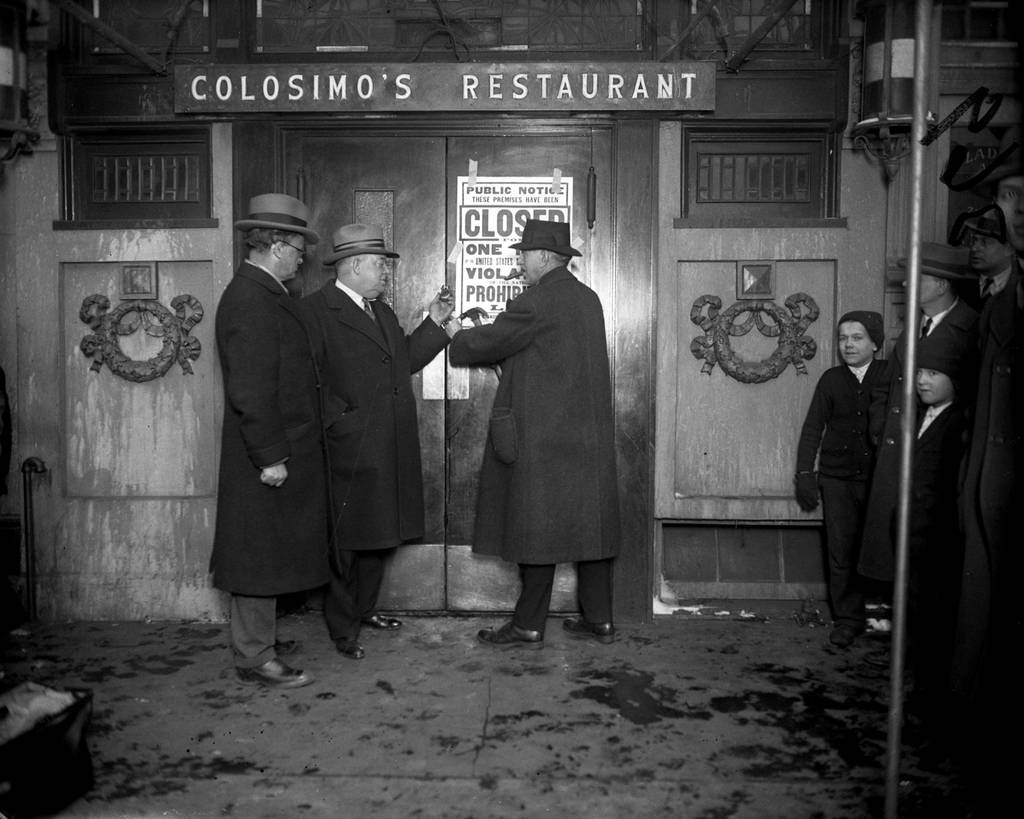
One was the Hawthorne Smoke Shop at 4837 W. 22nd St. in Cicero, and subsequently at other locations in that suburb. As its moniker suggests, it appeared to be a cigar store. But as an FBI agent’s deposition notes, the profits didn’t come from stogies and breath mints:
“The business consisted of taking bets on horse races, roulette wheel, craps and poker. There were approximately 40 to 50 people employed in the business.” There was a branch operation in the nearby Hawthorne Race Track, and no doubt about who the owner was.
The 22nd Street casino was raided on May 16, 1925, by sheriff’s deputes accompanied by the president of a Cicero citizens organization, a local man of the cloth. Capone showed up in his pajamas and threatened the commanding deputy: “This is the last raid you will ever pull.” He took the citizens’ leader aside.
“Reverend, can’t we get together?” Capone asked. “I give to churches. I give to charity.”
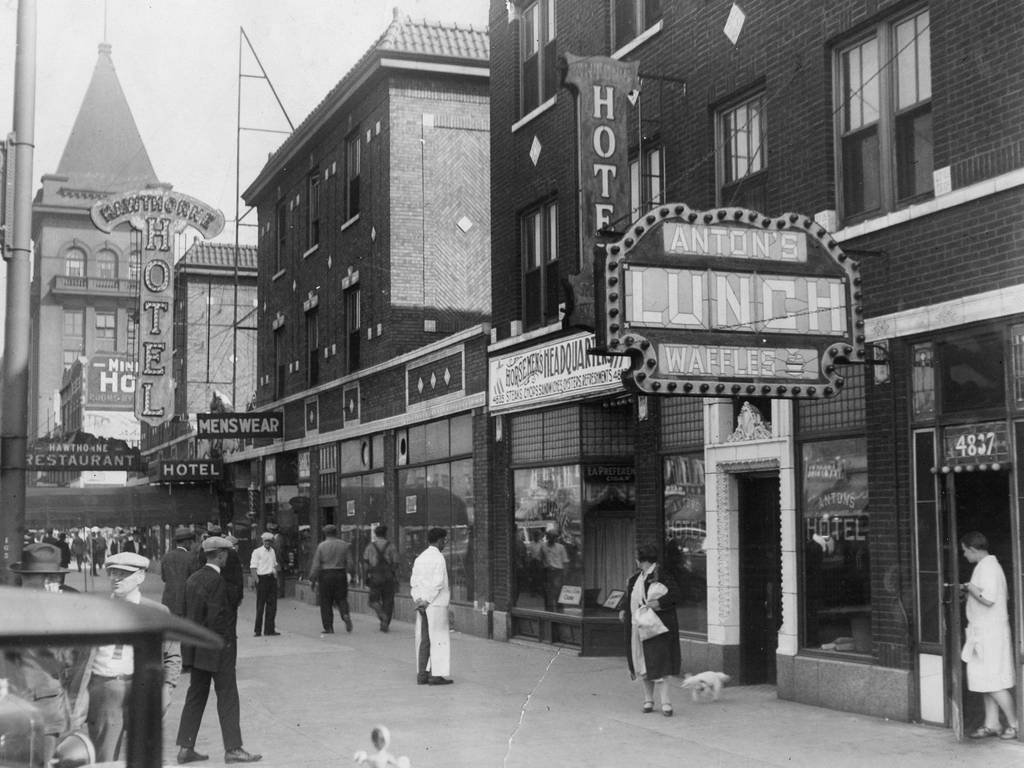
Besides muscle and money, Capone used his talent for public relations to deflect attacks on his brazen disregard for the law. “I give the public what the public wants,” he once told a reporter.
One thing Chicagoans consistently crave is satisfaction of their fascination with gambling, notes Joseph Epstein, a retired Northwestern University professor and student of local mores.
“It was an ideal compounded of a good deal of movie going, of watching adults in card rooms of town and country clubs, and in part of Chicago itself,” Epstein wrote in a 1972 Tribune essay. “Chicago, after all, had a reputation of being a tough town, a man’s town, and of course a hoods town, too. Kids in other towns grew up that way, too, I’m sure, but without the tradition of machismo that Chicago provided.”
So it’s not surprising that entrepreneurial hoods saw the potential windfall from running gambling operations. Dividing the loot often led to violence.
Dean O’Banion, a florist, doubled as a bootlegger and was granted part ownership of the 22nd Street casino, also known as The Ship, by Torrio’s gang. In 1924, O’Banion was murdered in his floral shop on State Street, kitty corner from Holy Name Cathedral. Presumably the hit man was hired by a disgruntled partner or rival — for the betting, rather than the boutonniere, business.
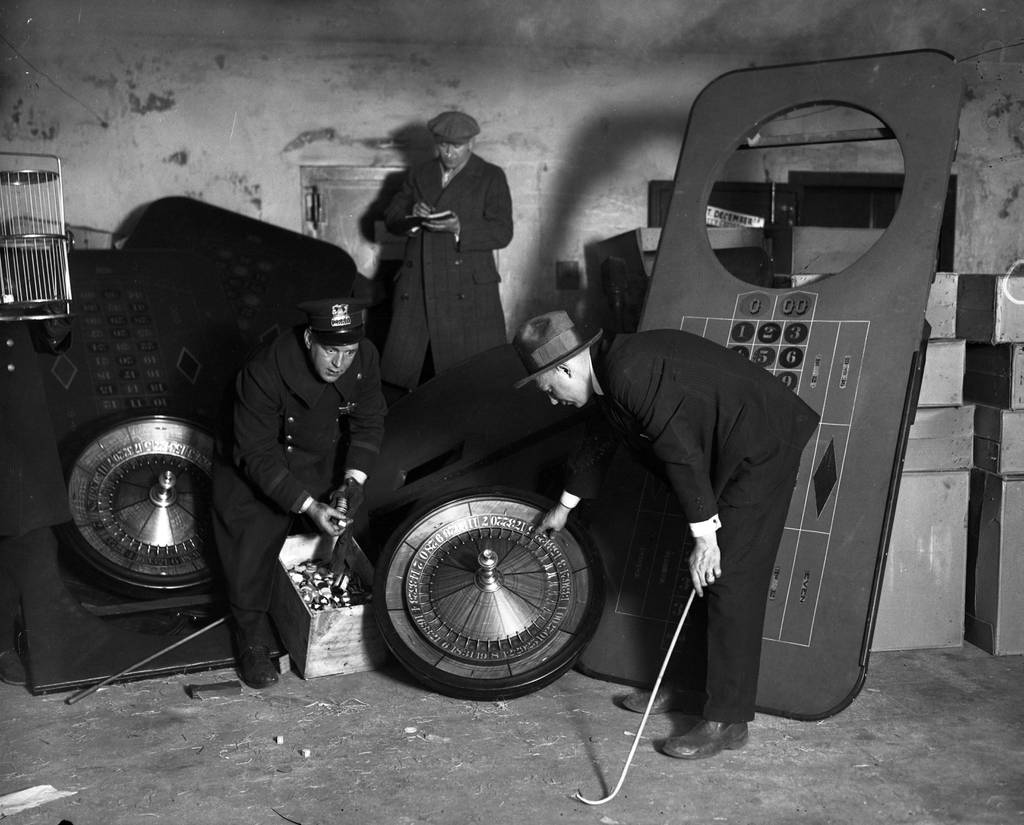
Capone was involuntarily retired as a casino impresario by the federal government in the early 1930s. Convicted of income tax evasion, he was locked up in Alcatraz Penitentiary. His henchmen and their successors took up the slack.
Jake “Greasy Thumb” Guzik, a trusted adviser to Capone and subsequent mob leaders, ran the Dome, at 7466 W. Irving Park Road. It was hardly a penny-ante joint, as the state’s attorney police discovered when raiding the casino in 1943.
They seized, by the Tribune’s count, “7 roulette wheels, 6 dice tables, 6 poker tables, blackjack tables, chuck-a-luck cages, and other casino paraphernalia.” The manager, Bill Bennett, was listed “as a distributor of graft payments on the Guzik ledger sheets examined by several grand juries two years ago.”
In the city’s Black neighborhoods, an illegal predecessor to the Illinois Lottery known as “policy” flourished. To win, bettors had to pick a series of numbers that changed daily.
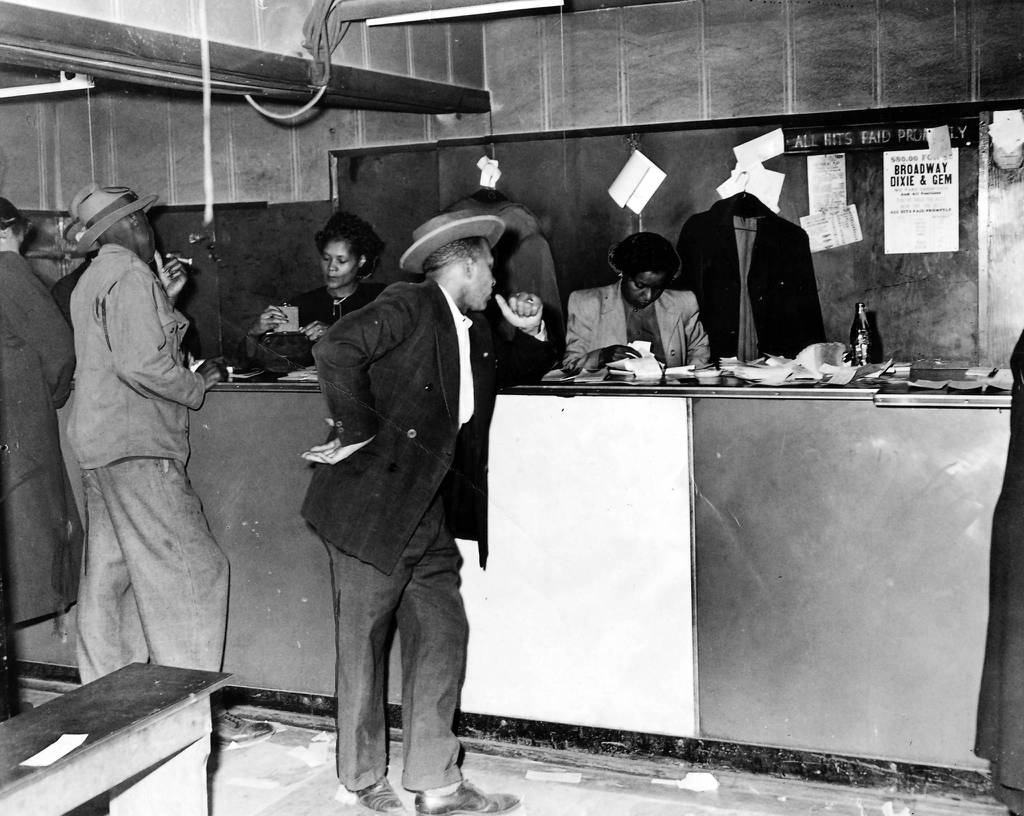
In 1949, police raided a casino at 610 E. 50th St. that a Tribune headline proclaimed a “Swank Policy Racket Depot.” A sign at that address advised patrons to carefully check the sequence they’d written on their tickets before leaving the counter. “Girls Are Not Responsible For Mistakes Hereafter,” the sign noted.
Those clerks and myriad others in similar casinos were part of a policy empire run by Theodore Roe, the son of a Louisiana sharecropper who came to Chicago to work for a tailor and wound up taking over the local numbers operation.
[ When policy kings ruled gambling on Chicago’s south side ]
Time magazine noted that the Capone mob was attracted by the $1.12 million Roe and a partner made in 1946. After being kidnapped, the partner paid a $100,000 ransom and retired to Mexico. Roe declined to give up what became a solo operation and in 1951 killed a mobster named Leonard “Fat Lennie” Caifano during a kidnapping attempt. Roe’s luck ran out the next year, when he was killed by a shotgun blast outside his South Michigan Avenue home.
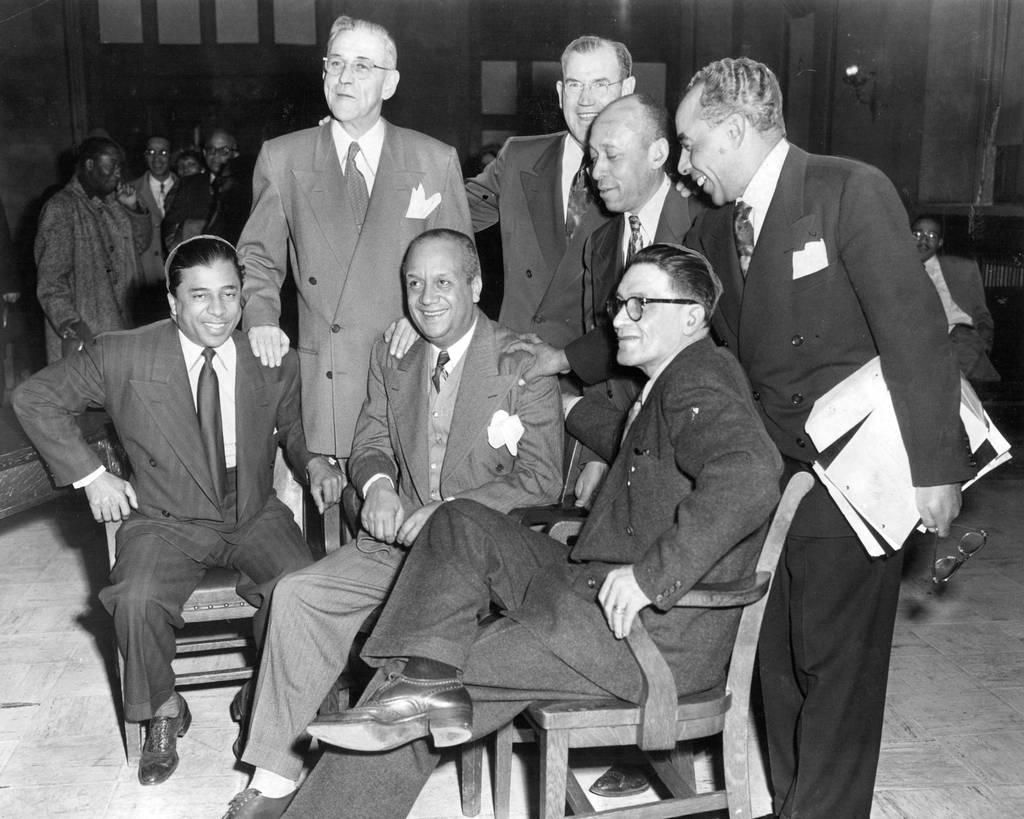
The acting boss of the Outfit at around that time was Tony Accardo, also known as “Joe Batters.” En route to succeeding Capone as the mob’s capo di tutti capi, Accardo went into the wholesale end of the betting industry. He took control of the wire services that casinos depended upon for setting the odds on a customer’s wager.
Encouraged by his wife, Accardo stepped back from day-to-day mob leadership in the 1950s. He became its consigliere, the elder-statesman adviser. His successor, Sam Giancana, loved the limelight and those who performed in front of it. He dated Phyllis McGuire, a member of the famed singing-sisters Las Vegas act.

Vintage Chicago Tribune
Weekly
The Vintage Tribune newsletter is a deep dive into the Chicago Tribune’s archives featuring photos and stories about the people, places and events that shape the city’s past, present and future.
Giancana had a piece of the Villa Venice, an over-the-top but under water nightclub on Milwaukee Avenue between Northbrook and Wheeling. In a failed attempt to bail it out, he booked the Rat Pack — Frank Sinatra, Dean Martin and Sammy Davis Jr. — for a show in 1962.
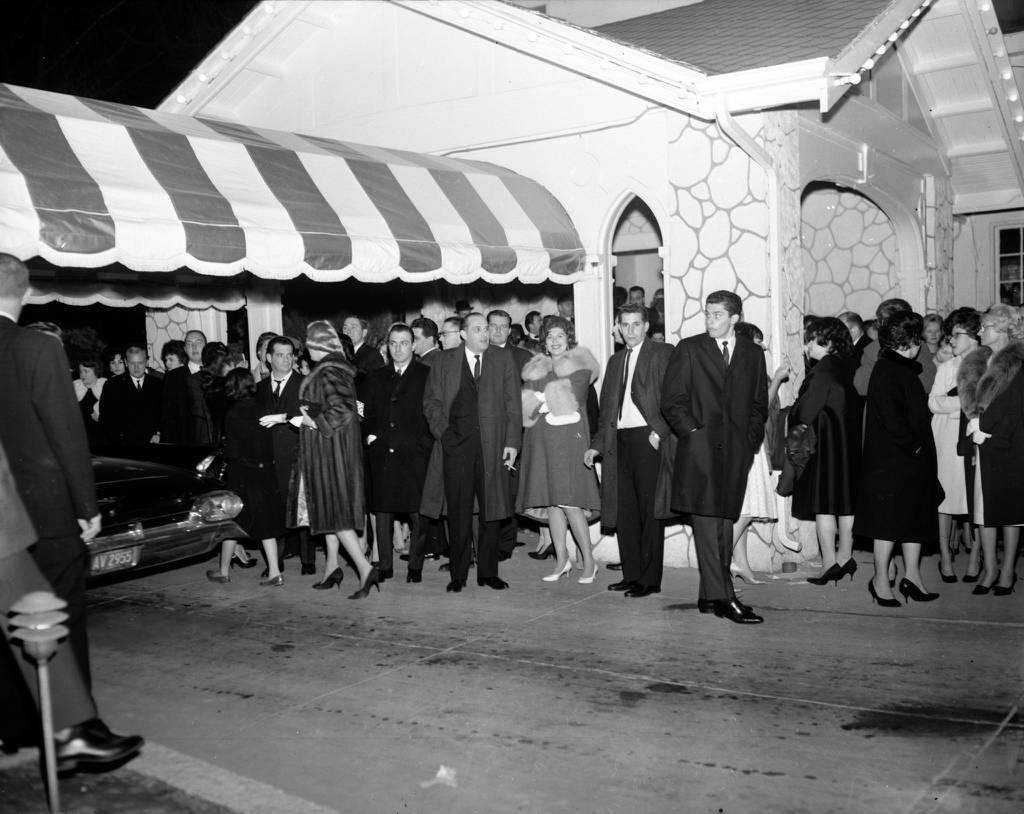
The price of admission virtually assured patrons of a seat next to at least a minor-league Mafioso. And as an added attraction, a mob-run casino operated out of a Quonset hut nearby. High rollers were whisked between the supper club and the dice and roulette tables in a shuttle supervised by Sam “Slick” Rosa, identified by the Tribune as “the syndicate’s chief of limousine service,” and his assistant, Joseph ‘Joe Yak’ Yacullo.
The Villa Venice burned to the ground in 1967.
[ Read how at Villa Venice, a Chicago mob boss had Sinatra singing ]
Consider, then, the honor roll of mobbed-up casinos and their rogues gallery of owners: Colosimo’s, the Hawthorne Smoke Shop, Johnny Torrio, Theodore Roe and Dean O’Banion, the gangster-florist.
What are the odds they’re going to be eclipsed in Chicagoans’ collective memory by the faceless operators of a legit casino?
Have an idea for Vintage Chicago Tribune? Share it with Ron Grossman and Marianne Mather at [email protected] and [email protected].
